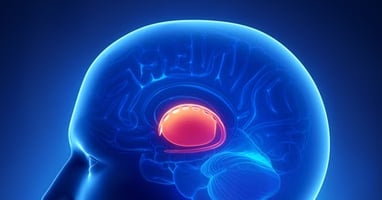In a study published in this week’s Molecular Psychiatry, researchers from Johns Hopkins University...
Experts Recommend New Approach for Treating Neuropsychiatric Symptoms of Dementia
 |
“Often, more than memory loss, behavioral symptoms of dementia are among the most difficult aspects of caring for people with dementia,” said Helen Kales, M.D., lead author and a professor of psychiatry at Michigan. “These symptoms are experienced almost universally… [They] are often associated with poor outcomes including early nursing home placement, hospital stays, caregiver stress and depression, and reduced caregiver employment.”
The approach, dubbed DICE—presented this week at APA’s annual meeting—focuses on the implementation of environmental modifications and other interventions, such as exercise, as a first-line method to alleviate neuropsychiatric symptoms.
Briefly described, the components are:
•D: Describe - Asking the caregiver, and the patient if possible, to describe the "who, what, when, and where" of situations in which problem behaviors occur and the physical and social context for them. These observations will be shared with caregivers.
•I: Investigate – Having the health provider look into all aspects of the patient's health, including dementia symptoms and current medications and sleep habits, that might be combining with physical, social, and caregiver-related factors to produce the behavior.
•C: Create – Working together, the patient's caregiver and health providers develop a plan to prevent and respond to behavioral issues, including everything from changing the patient's activities and environment to educating and supporting the caregiver.
•E: Evaluate – Giving the provider responsibility for assessing how well the plan is being followed and how it's working, or what might need to be changed.
In an interview with Psychiatric News, Kales said, “Innovative approaches are needed to support and train the front-line providers for older populations with behavioral symptoms of dementia. We believe that the DICE approach offers clinicians an evidence-informed structured clinical reasoning process that can be integrated into diverse practice settings.”
To see read more about nonpharmacological therapies for treating symptoms of neurocognitive disorders, see the Psychiatric News article, "Mindful Exercises and Meditation: Neurobiological Effects." Also, watch a Psychiatric News interview with Kales here.




